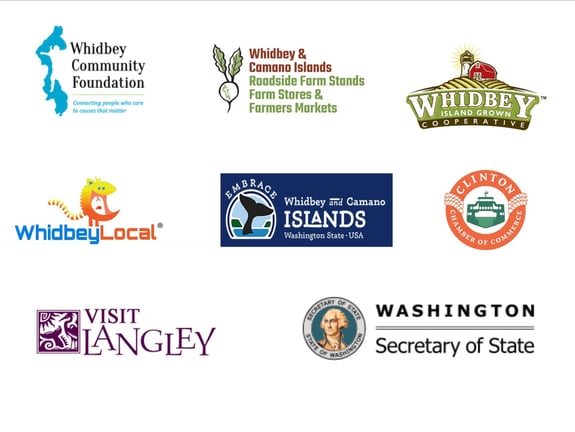Google and Facebook keep growing ad revenue each year despite the poor UX these ads are causing. The timing for new, disruptive solutions has never been better.


South Whidbey
a perfect place to start
At 1,200 businesses and a population of 16K, SW is large enough to benefit from automation, yet small enough to manually audit and track automation accuracy
Every community in the U.S. looks the same online as we're all on Google and Facebook. So who's going to be first to make their online community their own? South Whidbey is on an island, and we're mostly farmers, artists, builders, healers and teachers. We already strive for food independence so technological independence is no leap. We just need to see the path and we'll be ready to take the first step.
Island life comes with a strong 'intra-community' mindset which is helpful for our two phase implementation plans: Phase 1 is intra-communal with only directory services and an event calendar. Phase 2 is extra-communal and includes a social media platform with bi-directional syndication, allowing users to 'stay local' in terms of screen-time while also staying fully sync'ed with the 3rd party apps like Facebook and Instagram.


We can all relate to the Internet being over-commercialized, but how can we measure it?
If we can measure it, we can begin to estimate how compelling a non over-commercialized experience could be.
For example, googling 'home builder near me' yields endless results, so how can we measure the accuracy of the results?
Introducing Ombud.xyz
That's an incredible $55 per month for every Internet user, and users have had enough!
$229 billion is the total annual Internet advertising revenue in the United States.
We passively bring enterprise-class automation to small businesses at a regional scale.
Local communities are united as we drive traffic to their sites and provide a better UX with our destination website.
Islanders are all about independence. Already pioneering in food and energy independence, technological independence is a natural step.
The Research


The only way to know the accuracy of Google is by comparing Google's results to the actual results. To know the actual results one would have to search every local directory, every business registered with WA State (for the zip codes of interest,) the local city's business licensees, the phonebook, the grocery store cork-boards, Drewslist, Facebook and more.
So that's exactly what we did and we did it for all types of organizations spanning twelve categories and four zip codes.
The actual results were not just incrementally more compelling.
They were
Orders of Magnitude
more compelling.

